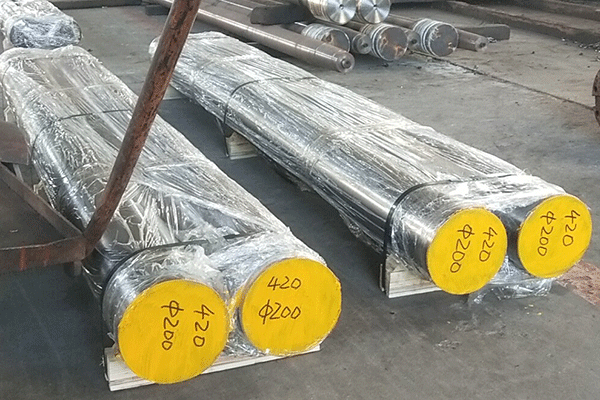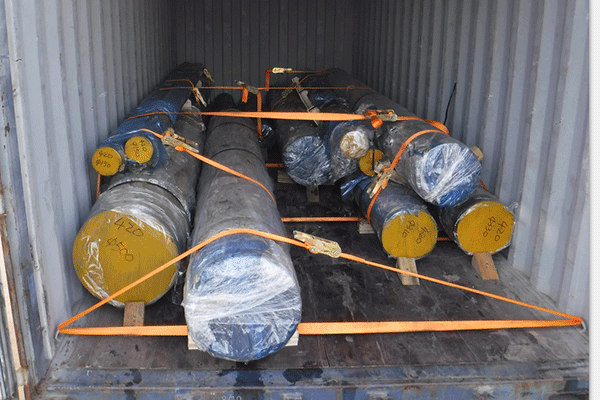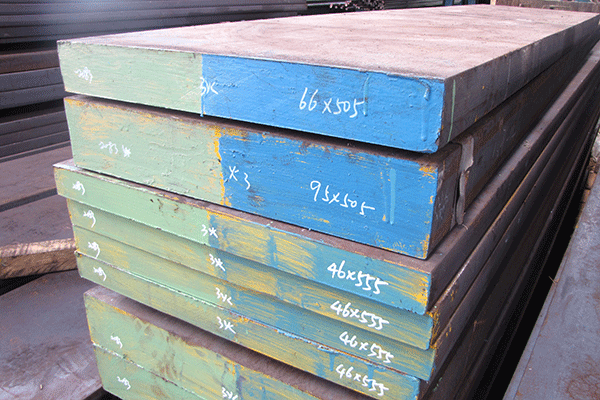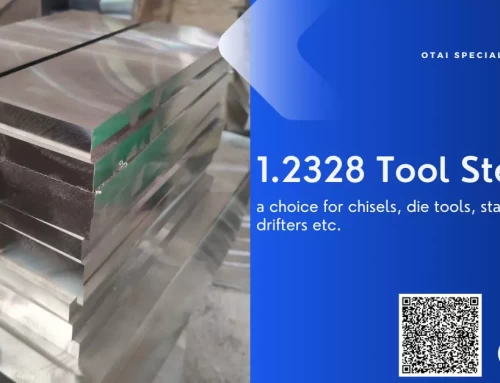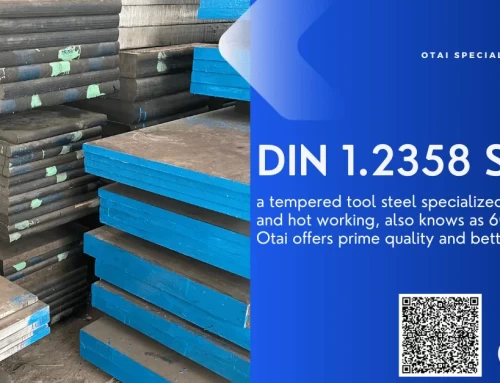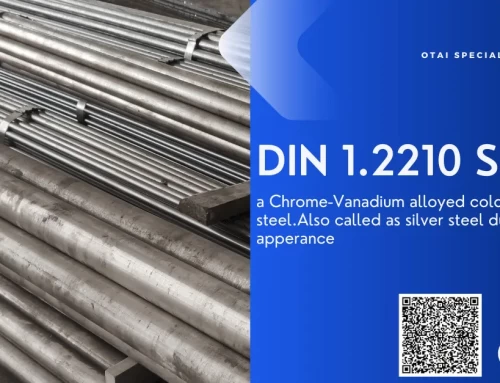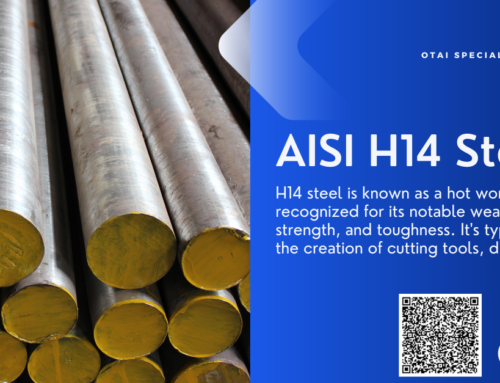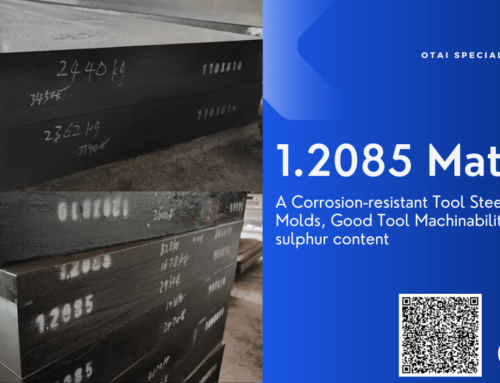DIN 1.2083 steel is chromium alloyed stainless plastic mold steel. It is equivalent to AISI 420 steel. The steel 1.2083 is a major steels for hot pressing in circulation.
1.2083 stainless steel is generally supplied annealed condition with a hardness < 230HB. It can also be delivered ESR and quenched and tempered to 320 HB.
Main characteristics of DIN 1.2083 are :
– a good atmospheric corrosion resistance,
– an excellent polishability,
– a good machinability in annealed condition,
– a high hardenability
– a good wear resistance
1. Supply Range of DIN 1.2083
Flat Bar / Round Bar: diameter 20~500mm
Condition: hot rolled; ESR; Q+T
2. Relevant Steel Specification for 1.2083 Stainless Steel
| ISO EN 4957 | ASTM A681 |
| 1.2083 / X40Cr14 | 420 |
3. DIN 1.2083 Steels Chemical Composition
| DIN ISO 4957 | C | Mn | P | S | Si | Cr | ||
| 1.2083 / X40Cr14 | 0.36 | 0.42 | max 1.0 | 0.03 | 0.03 | max 1.0 | 12.50 | 14.50 |
| ASTM / AISI A276 | C | Mn | P | S | Si | Cr | ||
| 420 | 0.15 | – | max 1.0 | 0.04 | 0.03 | max 1.0 | 12.00 | 14.00 |
4. Steel 1.2083 Steel Properties
Modulus of elasticity [103 x N/mm2]: 220
Density [g/cm3]: 7.80
Specific heat capacity[J/g.K]: 0.46
5. Forging of 1.2083 Stainless Steel
- Hot forming temperature: 1050-850oC.
6. Heat Treatment
- Soft Annealing
Heat to 760-800oC, cool in furnace slowly.
- Stress-relieving
After rough machining the steel should be heated through to 650°C, holding time 2 hours. Cool to 500°C slowly, then freely in air.
- Hardening
Preheating temperature: 600–850°C. Harden from a temperature of 1000-1050oC followed by oil, vacuum, pressure gas (N2), air or hot bath ar 500-550 C quenching. Protect the part against decarburization and oxidation during hardening. Soaking time: 1020°C, 30 minutes, 1050°C, 30 minutes. Soaking time = time at hardening temperature after the tool is fully heated through.
- Tempering
Tempering temperature: 250-570oC.
7. Applications of 1.2083 Steel
It’s usually used for plastic mould plates and inserts for working with chemically aggressive plastics; because of excellent polishing, it is also suitable for optical and medical products.

